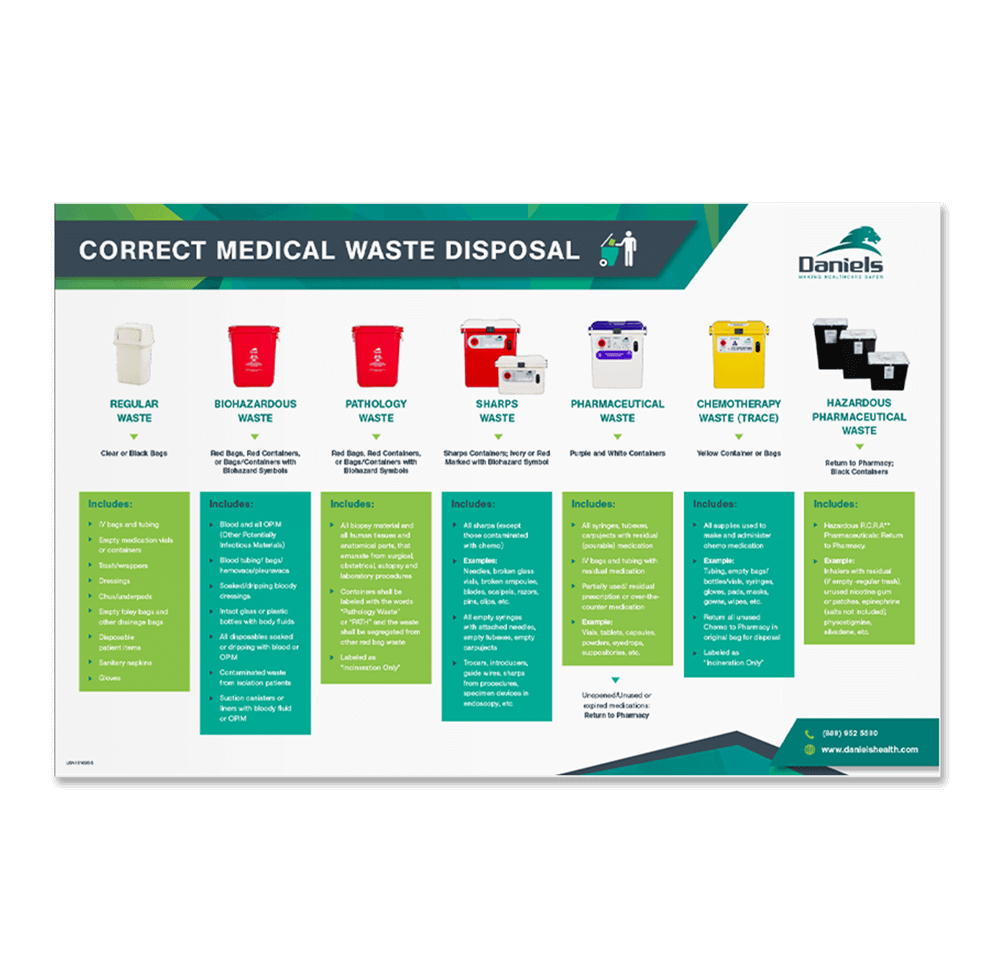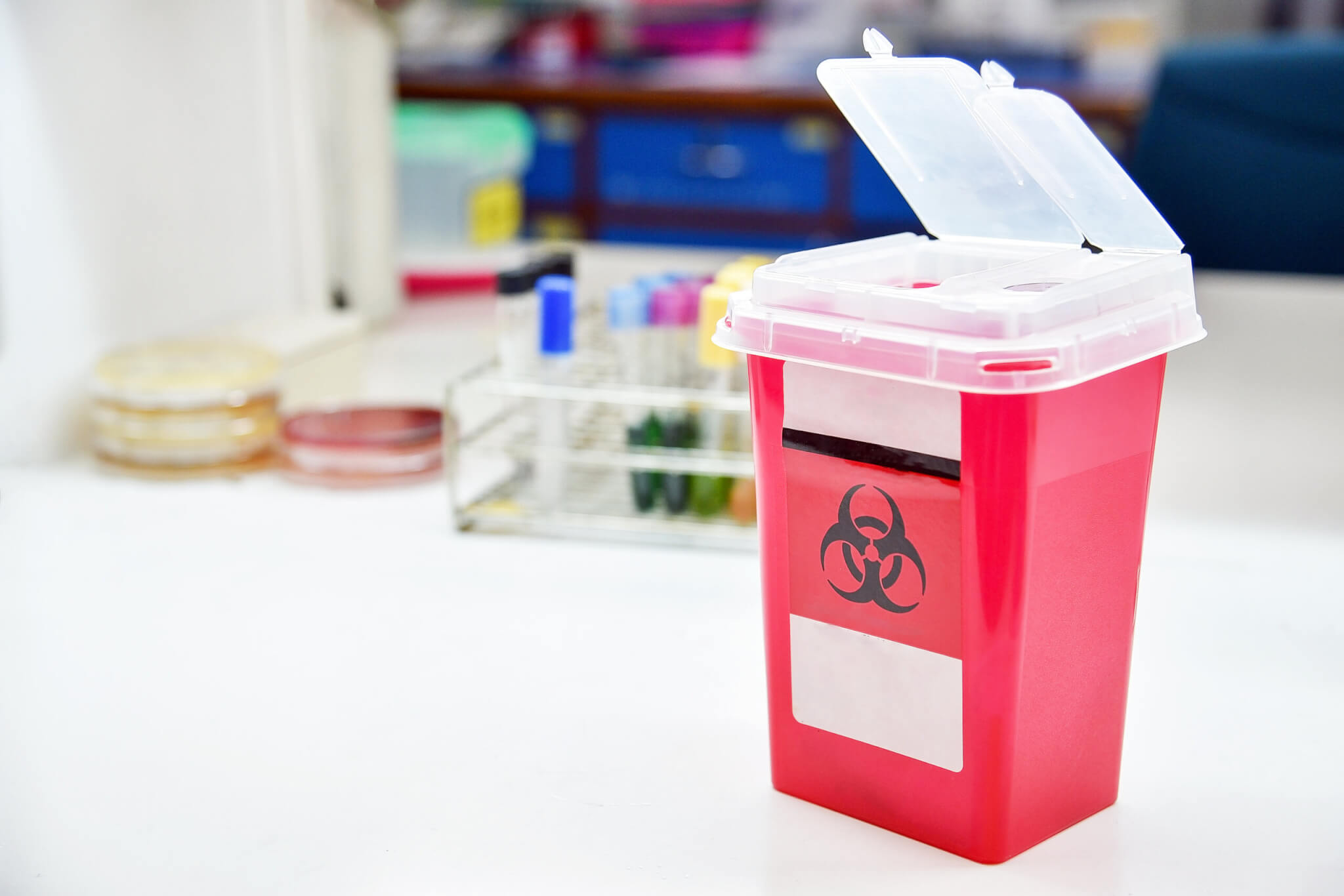Specialized Medical Waste Disposal Services: Your Option for Waste Management
Specialized Medical Waste Disposal Services: Your Option for Waste Management
Blog Article
Navigating Medical Waste Disposal: Essential Solutions for Healthcare Facilities
In the complex landscape of healthcare operations, the monitoring of medical waste is an important element that demands careful focus. Health care facilities, whether huge healthcare facilities or small facilities, are delegated with the obligation of handling, dealing with, and disposing of a vast variety of medical waste streams. The intricacies involved in navigating via the governing needs, ensuring proper waste partition, and carrying out secure collection and transportation procedures are vital. Recognizing the important services that sustain clinical waste disposal is not simply a matter of compliance but likewise a fundamental component in safeguarding public wellness and ecological health. The intricacies of this process are vital for health care facilities, and the know-how used in this world plays a pivotal function in preserving the integrity of health care systems.
Regulatory Compliance Assistance
For medical care centers, guaranteeing regulatory conformity assistance is necessary to maintain proper handling and disposal of clinical waste. Complying with guidelines set forth by companies such as the Epa (EPA) and the Occupational Security and Wellness Management (OSHA) is essential to prevent ecological contamination, shield public health and wellness, and stay clear of prospective lawful repercussions. Regulative compliance support supplies health care centers with guidance on just how to appropriately segregate, shop, transportation, and throw away different kinds of medical waste according to neighborhood, state, and federal guidelines. This assistance includes aid in creating and implementing detailed waste monitoring plans, performing normal staff training sessions, and performing audits to ensure recurring compliance. By partnering with regulatory conformity professionals, health care centers can stay updated on developing laws, reduce dangers related to inappropriate waste disposal, and ultimately add to a much safer and much more sustainable atmosphere for all.
Waste Partition Support

Healthcare facilities must supply clear standards and training to staff on how to segregate waste efficiently. This includes separating general waste from harmful materials such as sharps, infectious waste, pharmaceuticals, and chemical waste.
Collection and Transport Services

Correct collection and transportation solutions are essential components of the medical waste disposal process in medical care centers. These services make sure that hazardous products are managed safely and in compliance with policies to shield both the environment and public wellness. Medical care facilities depend on find more information specialized waste administration business to offer efficient collection and transport solutions tailored to their demands.
Clinical waste collection involves segregating various sorts of waste at the factor of generation, making use of color-coded bins or bags to compare general, hazardous, pharmaceutical, and other waste streams. Educated workers must execute this job to stop contamination and ensure proper disposal. When collected, the waste is carried in specialized automobiles outfitted to manage dangerous materials securely. These vehicles abide by stringent security requirements and comply with designated routes to accredited therapy facilities for disposal via techniques such as sanitation, landfilling, or incineration.
Therapy and Disposal Solutions
In the world of medical waste disposal for medical care facilities, after the essential stage of collection and transport solutions, the emphasis moves towards applying efficient treatment and disposal options. Therapy options often entail procedures such as autoclaving, which makes use of steam under pressure to sanitize the waste. This technique is frequently used for contagious waste that has to be rendered non-hazardous prior to disposal. An additional prevalent treatment approach is incineration, where waste undergoes high temperature levels in regulated settings to lower its volume and eliminate virus.
Disposal options encompass the final step in the clinical waste monitoring procedure. Reusing and resource recovery are also gaining traction as lasting disposal choices for particular types of clinical waste materials.
Effective therapy and disposal services are critical in ensuring compliance with guidelines and guarding public health and the atmosphere. Health care facilities have to meticulously assess and choose appropriate approaches that straighten with their waste management objectives and sustainability efforts.
Team Training and Education

To properly manage medical waste disposal in health care centers, thorough team training and education play an essential duty in ensuring adherence to governing demands and maintaining a risk-free environment. Appropriate training outfits team with the expertise and skills needed to deal with different sorts of medical waste, segregate them properly, and package them firmly for disposal. you can try these out By informing workers on the dangers connected with improper handling of clinical waste, facilities can minimize the possibility of crashes, contamination, and regulatory offenses.

Verdict
In final thought, medical care centers rely upon necessary clinical waste disposal solutions to guarantee governing conformity, appropriate waste partition, safe collection and transportation, efficient treatment and disposal, YOURURL.com along with personnel training and education and learning. These solutions play a critical duty in keeping the health and wellness of both healthcare workers and the public, highlighting the value of appropriate monitoring of medical waste in medical care settings.
For health care centers, ensuring regulative conformity support is crucial to maintain appropriate handling and disposal of medical waste. Waste segregation includes classifying different kinds of medical waste to guarantee proper handling, therapy, and disposal. This includes dividing general waste from hazardous materials such as sharps, transmittable waste, pharmaceuticals, and chemical waste.Clinical waste collection involves setting apart various kinds of waste at the point of generation, utilizing color-coded bags or bins to distinguish in between general, harmful, pharmaceutical, and various other waste streams.In the realm of medical waste disposal for health care facilities, after the vital phase of collection and transport services, the focus changes towards executing efficient therapy and disposal options.
Report this page